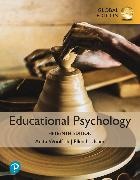Read more
List of contents
About the author
About our author
Anita Woolfolk Hoy was born in Fort Worth, Texas, where her mother taught child development at TCU and her father was an early worker in the computer industry. She is a Texas Longhorn -- all her degrees are from the University of Texas, Austin, the last one a PhD. After graduating, she was a psychologist working with students in elementary and secondary schools in 15 counties of central Texas. She began her career in higher education as a professor of educational psychology at Rutgers University, and then moved to The Ohio State University in 1994. Today she is Professor Emerita at Ohio State. Anita's research focuses on motivation and cognition, specifically, students' and teachers' sense of efficacy and teachers' beliefs about education. For many years she was the editor of
Theory Into Practice, a journal that brings the best ideas from research to practicing educators. She is a Fellow of both the American Psychological Association and the American Educational Research Association, and has served as President of Division 15 (Educational Psychology) of APA and Vice-President for Division K (Teaching & Teacher Education) of AERA. Anita also has collaborated with Nancy Perry, University of British Columbia, to write the 2nd edition of
Child Development (Pearson, 2015) and with her husband, Wayne Hoy, to complete the 5th edition of
Instructional Leadership: A Research-Based Guide to Learning in Schools (Pearson, 2020).
Summary
Educational Psychology: Active Learning Edition uses 44 easy-to-read modules to explain how you can use educational psychology research in your own classroom. Theory and practice are considered together, showing how research on child development, cognitive science, learning, motivation, teaching and assessment can be used to solve the everyday problems of teaching. This practical resource includes specific strategies, guidelines, real-world issues, case studies and tips from expert teachers to help you learn how to create an inclusive classroom for every student.
The 15th Edition features expanded analysis of the brain and neuroscience; integrated coverage of social-emotional learning and trauma-informed teaching; and a bold approach to issues of identity, race and privilege.

